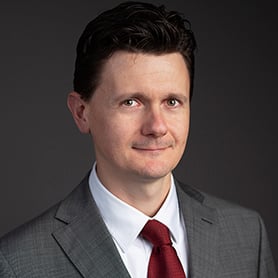Bringing in Holistic Sustainability Transformation*
Sustainability consulting firm dss+ believes that transformation goes beyond the boardroom, down to the furthest chains of operations and suppliers.

Starting February 2022, global sustainability consulting firm DuPont Sustainable Solutions rebranded itself as dss+. It employs more than 1,000 professionals in 40 countries to serve its clients across various industries, from transportation, oil, and gas to food and beverage.
"The dss+ is the evolution of DuPont Sustainable solutions," says Federico Magalini, Director of Sustainability Services for UK and Italy at dss+. "I think that is a nice transition into an independent company in 2019."
The firm was previously known as a subsidiary of DuPont until September 2019, a position it held for almost five decades. After its separation, the firm made a massive decision in 2021 to acquire KKS Advisors, a firm known for its expertise in sustainability strategy, impact investing, SDG implementation, corporate reporting and environment, and social, and governance management.
"There's a reason behind the plus," says Magalini about the firm's new name. "There are two definitions: one is of course that we are a legacy of DuPont and now we're something more, something else. I like to see the plus as a symbol that we can achieve much more."
"We help companies understand that sustainability doesn't need to be something apart; it can be incorporated into the initiatives that they already have"
– Ana Mundim – EMEA Offering and Sales Lead, dss+
The firm is known — as it was before its evolution — for its holistic and integrated approach toward sustainability. It aims not only to tackle technical barriers but also to infuse its consultancy into organisational cultures, further securing long-term results.
"We have seen an incredible update on sustainability agendas in companies, and this is because of the pressure from investors and from the board, which is really representing the place of the company where decisions are taken," says Magalini. "That's where I see the biggest potential because sustainability, in the past, was not that prominent in the company or on the board. And the reason is that now, sustainability has a clearer economic dimension that is visible to the world."
"One company's board decision can have a very positive effect on a network of companies upstream or downstream"
– Federico Magalini director of sustainability services for UK and Italy, dss+
Holistic transformation
Magalini sees the corporate-level attitude change toward sustainability as a big opportunity, particularly as companies start to ponder how they can produce better sustainable products, with a more sustainable service. "This is the turning point," he says. "If we do all our activities sustainably and improve our sustainability, we manage to get a couple of points or credit value, and there's a monetary value in that."
One type of service that dss+ offers is to help companies understand how to integrate their ESG priorities into operations. "Most companies are now looking into these challenging questions around how to speed up the process," says Ana Mundim, EMEA Offerings and Sales Lead at dss+.
"We help companies to understand that sustainability doesn't need to be something apart; it can be incorporated into some of the initiatives they already have." According to Magalini, when it comes to sustainability and its related transformation, one cannot see a company as only those sitting at board meeting tables. Instead, the transformation needs to be effected across every single part of the company, right down to the frontline. "
A company, especially a big one, is not simply the board. A company is everything in the setup," he says. "One of the key activities that we are always keen to do is bring the cultural transformation from the boardroom, where decisions are made, down to the very last employee. Because, in the end, this sustainability culture needs to be implemented by the people on the shop floor, by the people on delivery, by the people who depend on the company."
Magalini then differentiates sustainability transformation within a company into three different tiers. "So the worker, shareholders, and the board of investors are one. The next tier is the dissemination of this culture within the company," he says. "Then, of course, the final tier is operational transformation, which sometimes requires you to change processes, change your production, change the technology. It might have different angles."
"In the end, this sustainability culture needs to be implemented by the people on the shop floor, by the people on delivery, by the people who depend on the company"
– Federico Magalini director of sustainability services for UK and Italy, dss+
A shift in mindset
There is another aspect in the journey toward sustainability that needs to be considered, which is the coordination of governance that goes beyond the comfort of the company. "We're talking about sustainable procurement or sourcing; we need to bring the discussion down to engaging the suppliers," says Mundim. "It's a challenge already for some organisations to work across functions within the boundaries of the organisation, but transformation means we need to engage with external stakeholders."
In this case, for Magalini, helping companies to shape a better governance model is also an important area of work. This includes how to better integrate the sustainability dimension for sustainable and ethical procurement, or the use of ethical products into their own operation. "Now companies are realising that they are not alone, and most of the benefits they could achieve cannot be achieved in isolation. They can achieve it only by working with the entire supply chain in their ecosystem."
More and more companies are now getting the message, changing their mindsets to acknowledge that a single company decision is not enough to achieve sustainability and that such a company cannot be decoupled from its upstream and downstream suppliers.
"It's a challenge already for some organisations to work across functions within the boundaries of the organisation, but transformation means we need to engage with external stakeholders"
– Ana Mundim – EMEA Offering and Sales Lead, dss+
"We are realising this during discussions about net-zero scope 3 emissions, but also across the supply chain with the interconnectivity of us all," Magalini says. "At the moment, we are in discussions with a company that has really ambitious plans around sustainability. We can achieve that only if the network of our suppliers is following our idea."
"Of course, it is not as simple as, ‘I am the client, you are the supplier, and you do what I tell you to do'. That's not going to work.
So now we are working with the suppliers of our client to convince them and help them to undergo this journey," he says. "I think this is really important because one company's board decisions can have a very positive effect on a network of companies, upstream or downstream."



